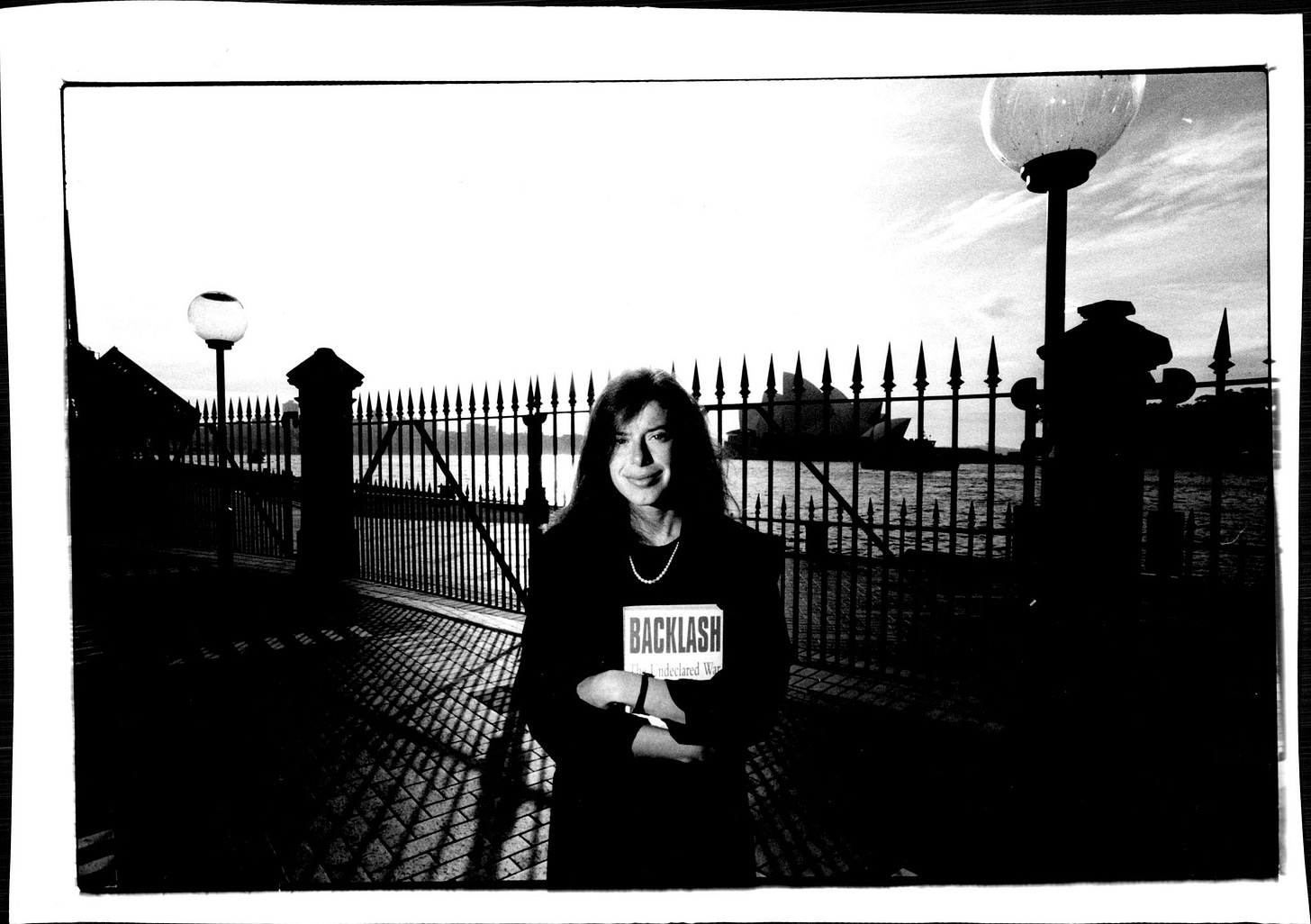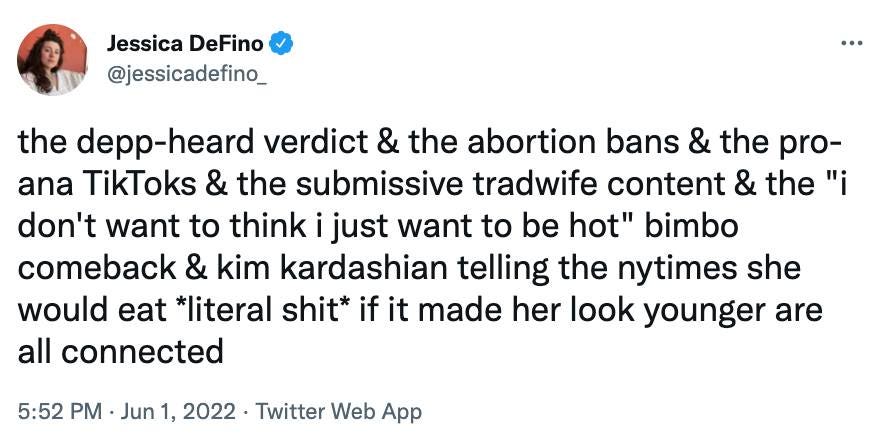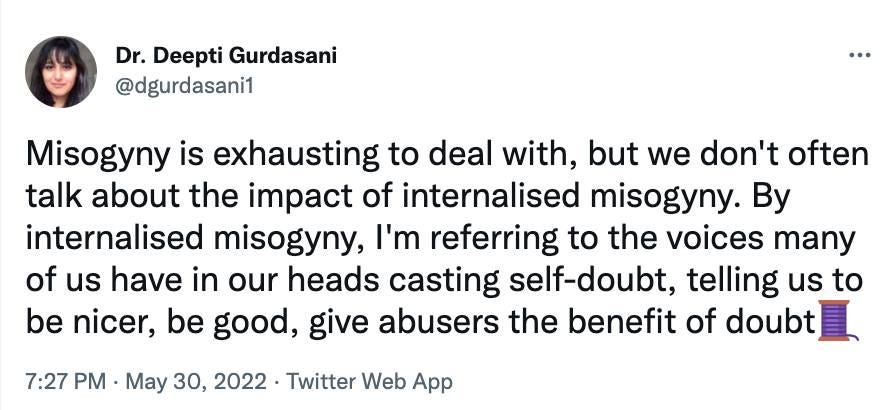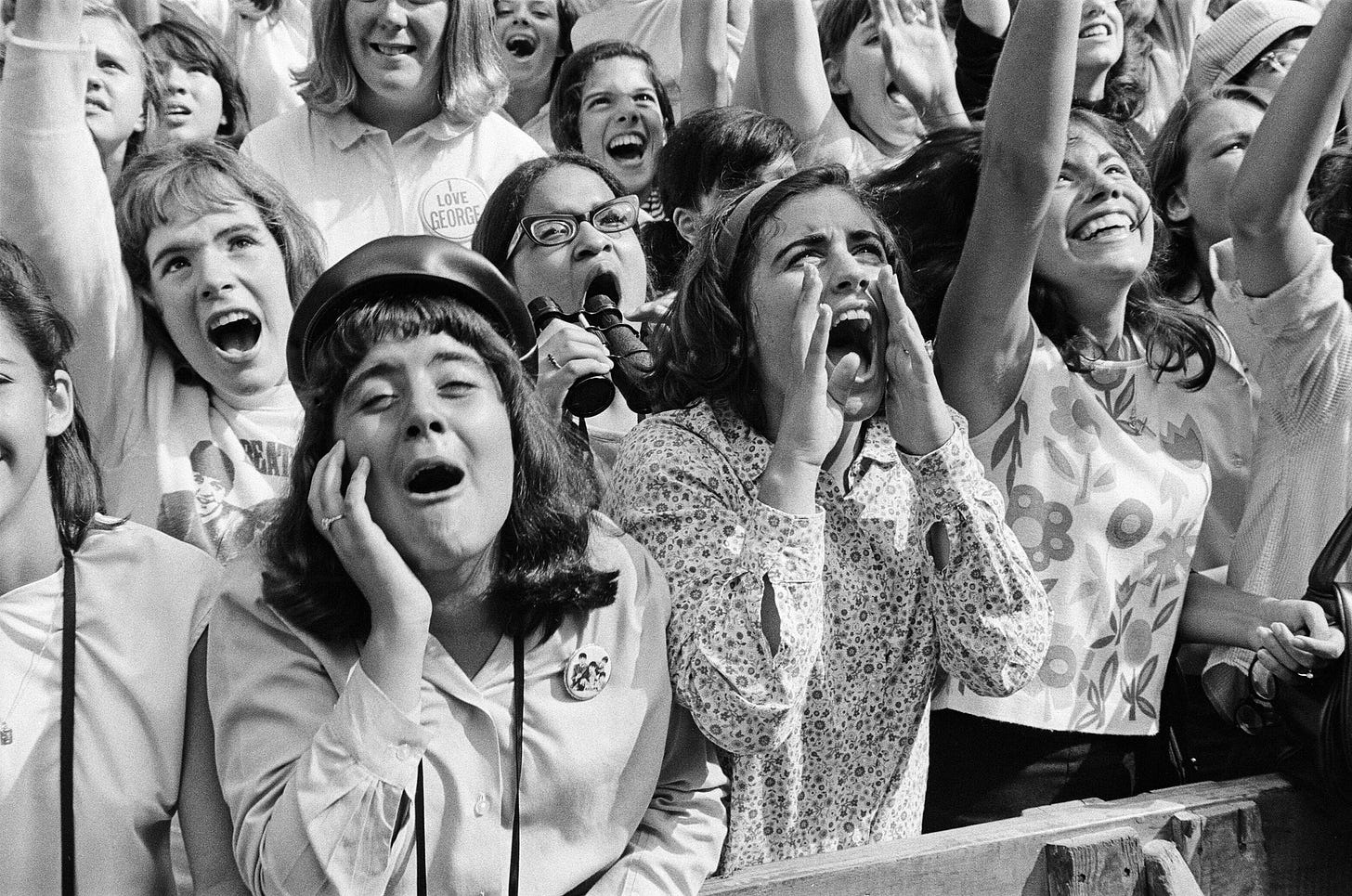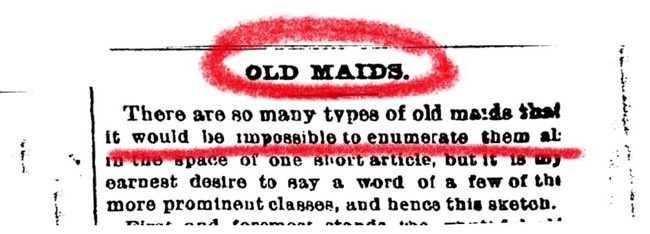Is This What Backlash Feels Like? Amber Heard, Roe v. Wade and More
You’re a free subscriber to Wait, Really? For the full experience, become a paying subscriber.
In 1991, the year in which Anita Hill testified before Congress that she had been sexually harrased by then-SCOTUS nominee Clarence Thomas, Susan Faludi published her feminist bestseller, Backlash: The Undeclared War Against American Women.
The “backlash” referred to the way that — despite the media and politicians seeming to be shouting that the fight for equality had been “won” — there was an insidious counterassault on women’s progress. It was an erosion, from pop culture to politics to self-help books claiming feminism had given women an identity crisis, masked in the language of empowerment.
If American women were so “equal,” Faludi wrote, why did they represent two-thirds of all poor adults? If they had "made it," why were 80 percent of those who worked still trapped in secretarial jobs? If they were so "free," why were their reproductive freedoms still in jeopardy?
Susan Faludi with her book, Backlash, in 1992. (Fairfax Media Archives/Getty Images)
I was too young back then to know what a backlash was, or to be reading a 550-page feminist tomes. My parents didn’t let me watch Fatal Attraction, the ultimate trope of the crazed scorned lover, or the other Hollywood contributions to that era (think Kathie Bates in Misery or Sally Field in Surrender), which Faludi describes as reducing women to “sniveling spinsters” or “fire-breathing she-devils.”
And yet I’ve been rereading Faludi’s work this week because, two decades later, it feels like we are experiencing the backlash’s second wave.
Remember all that celebrating the historic number of women in Congress, the first Black woman Vice President, and the seemingly endless stream of “firsts” (first woman to head the Treasury Department, first openly trans state senator, first woman to referee a Super Bowl and more)?
Before the pandemic, women were in fact the majority of the workforce for the first time in a non-recession. We had proclaimed #MeToo, breaking decades of silence on sexual harassment and abuse. Brands like Skittles were so progressive when it came to gender and sexual expression that they didn’t even need to keep their rainbow; they would turn the Skittles gray for Pride month — perhaps the actual dumbest corporate pandering of all the stupid faux wokeism.
Culturally, the internet spent much of 2021 fighting to #FreeBritney — and reframing the stories of women past, one after the next, through the more “enlightened” lens of today (then patting ourselves on the backs for how far we’d come). J.Lo was on stage in a glitter leotard at the Super Bowl halftime show… at 50! All colors and body types and genders were being placed in major advertisements, to the point that it felt insincere, including on this year’s cover of the Sports Illustrated swimsuit issue. (Wouldn’t it be more progressive to get rid of the swimsuit edition altogether?)
Enter, 2022.
Those working women who were mothers have endured two years of a pandemic in which the cracks in our social safety net have been tragically exposed. They are so tired they can hardly eek out a cry, let alone a primal scream. Abortion rights, as we know, are one finalized draft away from being overturned — disproportionately impacting abortion access for women of color and poor women in the South and Midwest.
Twitter embed tool isn't working, so linking here: Sarah Marian Seltzer's tweet
We may have stopped wearing hard pants, but we are still expected to be ageless: Botox and other injectable cosmetics are booming. Kim Kardashian claims she would eat poop to look younger. (So much for embracing our age.) And speaking of poop, Amber Heard will perhaps never live that reference down — this week, a Virginia jury found that Johnny Depp was defamed by his ex-wife when she accused him of domestic abuse, in a hot spectacle of a trial that seemed to bring forth all of society’s darkest, most misogynistic, tendencies (even if you didn’t believe her).
It’s somewhat pathetic that, earlier this week, when the conviction of Harvey Weinstein was upheld — after months of rumors that it might be overturned in an appeal — I actually thought, “Good news for once!” For all the discussion of the #MeToo pendulum swinging too far, and the weakness of a slogan like “Believe All Women,”” let’s not forget: Cosby, accused by more than 60 women, and who is on trial again for a different sexual assault allegation, presently roams free.
I’ve been struggling this past week to try to figure out precisely how all of these things are connected. What do trolls on the internet using the language of social justice to express their blind support for Johnny Depp have to do with the six male and three female justices of the Supreme Court who are expected to take away women’s bodily autonomy?
But perhaps it’s not really that complicated. As the philosopher Kate Manne has written, misogyny is not just a hatred of women by men, it’s a system — a system where women face hostility and hatred because they exist in what is still a patriarchal world. Those who perpetuate that system are not simply men, or sexists, or women, they are all of us. As Manne has put it: “Misogyny rewards those who reinforce the status quo and punishes those who don’t.”
The dismal view is that the backlash — as Faludi put it, “at once sophisticated and banal, deceptively ‘progressive’ and proudly backward” — never actually ended. This is purely a predictable and more modern extension.
But there’s perhaps a more optimistic way of looking at it, too.
My friend Susie recently pointed me to a clip of Amandla Stenberg, the 23-year-old actress and activist, speaking at a conference on the more than 300 pieces of anti-LGBTQ legislation making their way through state legislatures across the country. But she described the reality of this moment not as a “backlash,” or even a “failure,” but as a “death rattle” — a kind of last grasp, before the body finally gives out, in response to the fact that things are, slowly but surely, radically changing.
What I’m Reading:
Fangirling The Beatles in New York City, 1964. (Mirrorpix/Getty Images)
AHHHHH!!!! Why fangirls scream. I love this! It’s adapted from the author’s forthcoming book about how fangirls created the internet as we know it.
Sheryl Sandberg leans out. The COO of Facebook and author of Lean In resigned this week, after 14 years on the job. Many will say that’s a good thing in light of intense scrutiny on Facebook over a variety of problems. But it still feels symbolic. Here’s a piece on what Lean In meant to women, and how those needs have evolved, with a great quote from my pal Rachel Sklar: “Male business leaders write books all the time, and they just fly under the radar on how their books stand the test of time.”
More on Depp/Heard: My piece about the verdict; a Rolling Stone analysis of its impact on domestic violence victims; and an extremely thorough unpacking of the case by Michael Hobbs, former cohost of the podcast, “You’re Wrong About.”
“Brb soccer practice.” I learned to type using AIM, and probably (horrifyingly) once put a Dave Matthews Band quote in my away message. (Don’t @ me I’m ashamed enough.) On AIM’s 25th anniversary, this ode to the Away Message is very cute.
Happy Pride! These “Old Gays” are living their best lives on TikTok.
From the Archives: Which type of old maid are you? 👵
You know how every day these days is a “holiday” of some kind? Well, tomorrow is National Old Maid’s Day, maybe the best fake holiday, in honor of single ladies everywhere. As an homage to the unmarried woman, I dug up this 1873 article from The New York Times, when the Gray Lady (herself an old maid????) proclaimed: “There are so many types of old maids that it would be impossible to enumerate them all in the space of one short article.”
Oh but don’t worry, the author tried anyway. Among the options:
“The youthful old maid.” She’ll tell you she’s 23, though in reality she’s “closer to 43.” [ME!!!!]
“The old old maid.” At the ripe old age of 30, she “wears nothing but brown, gray and black” and attends lots of lectures and concerts.
“The disappointed old maid.” She’s a “meek, subdued woman, whose pale, sad face still bears the traces of former beauty.”
⏩ Forward this newsletter to a friend or sign up to get it to your inbox.
💬 Have thoughts to share? Email me at supwaitreally@gmail.com. (You can also just reply to this email.)
🙋🏻♀️ Follow me on Instagram or learn more about my writing and books here.





